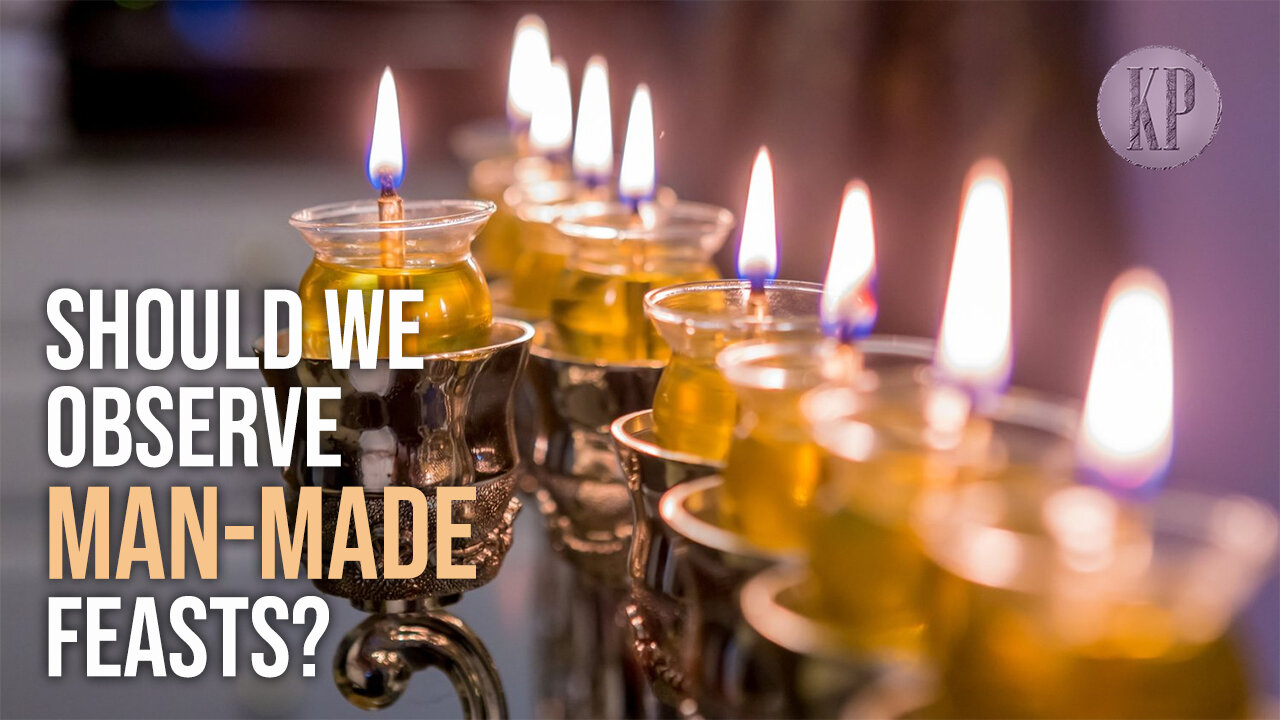Some have wondered why certain feasts are missing from the Hebrew Calendar. Well, only the feasts mentioned in Leviticus 23 are directly ordered by Yah. There is no record of him ordering any others. It was man who instituted the other feast days, which soon became Hebrew tradition. In fact, Yeshua directly condemned anything taught as commandments that was based on our own traditions, as seen in a brief exchange with the Pharisees and scribes in Matthew 15:
1 Then Pharisees and scribes came to Yeshua from Jerusalem and said, 2 “Why do your disciples break the tradition of the elders? For they do not wash their hands when they eat.” 3 He answered them, “And why do you break the commandment of Elohim for the sake of your tradition?”
—Matthew 15:1 – 3
Yeshua later cites the ways in which their traditions violated Yah’s commandments, and then, in verse 9, he quotes the prophet Isaiah to cement his point:
9 “In vain do they worship me, teaching as doctrines the commandments of men.”
—Matthew 15:9
Festivals such as Purim and Hanukkah—also called the Feast of Dedication or the Festival of Lights—are ordained by man, not by Yah. What is more, they are not tied to the spring or fall harvest, therefore they were never part of our agricultural year, unlike all the convocations ordained by Yah, so they have no prophetic value. The truth is, these non-ordained feasts have become commandments of men taught as doctrines. Like the Pharisees and scribes, we have gone beyond the simple instructions found in Scripture and heaped a great deal more on top of what is required of us. And some use passages in the Messianic Writings to support their observance of these extra feasts—passages like John 10:22 – 23, which states:
22 At that time the Feast of Dedication took place at Jerusalem. It was winter, 23 and Yeshua was walking in the temple, in the colonnade of Solomon.
—John 10:22 – 23
The very next verse gives us a clue as to why he was at the Feast of Dedication.
24 So the Judahites gathered around him. . . .
—John 10:24
The people of Judah, because of traditions taught to them by the leading priests and scribes, made it a custom to gather at this particular feast. Therefore, because it was his mission to teach the people the correct way to worship Yah—and undo the damage caused by the leading priests—Yeshua had to go where they were. This is made plain in John 18. At his trial, during his final interrogation by the high priest, Yeshua said this:
20 “. . . I have spoken openly to the world. I have always taught in synagogues and in the temple, where all Judahites come together. I have said nothing in secret.”
—John 18:20
He always taught “where all Judahites come together,” he said. This is the reason why he taught in the synagogues, went to the temple, and was at a feast not ordained by Yah in Leviticus 23. John 10:22 – 23 is not a license for us to keep those man-made feasts; it merely proclaims John 18:20: Yeshua went to reach the people wherever and whenever they gathered, even though they were gathering based on man's traditions, which were taught to them by scribes and Pharisees, whom he rebuked in Matthew 15:3.
Yeshua himself wasn't given to the tradition of keeping man-made feasts. He only went to Jerusalem during mad-made feast celebrations for the sake of the people, for it was his mission and duty to teach them wherever they gathered. As Peter and the other emissaries boldly proclaimed to the council of priests and officials in Acts 5:29, we also say: “We must obey Elohim rather than men.”





